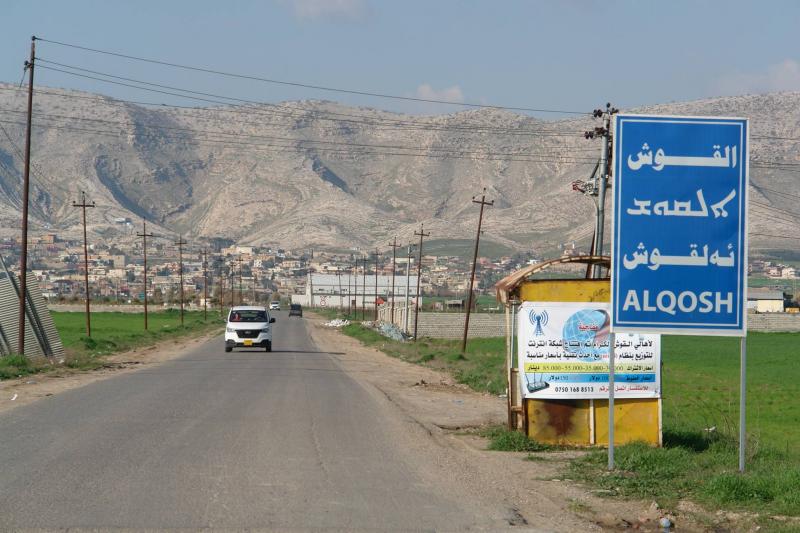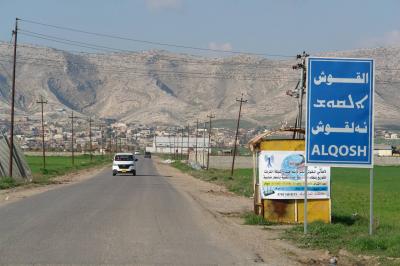The Nineveh Plains are currently experiencing a new crisis amid an intense struggle for administrative positions between Iranian-backed forces and the Kurdistan Democratic Party (KDP). This conflict has prompted Prime Minister Mohammed Shia' al-Sudani to intervene, aiming to defuse a situation that could spiral out of control and threaten civil peace in the region.
Historically, the Nineveh Plains, located east of Mosul in Nineveh Governorate, have been a source of tension between Iranian-aligned factions and the Kurds, largely due to the strategic importance of this ethnically diverse area, which comprises a mosaic of Christians, Sunni Arabs, Kurds, Shabaks, and Yazidis. The plains, which include towns such as Bashiqa, Hamdaniya, Bartella, Baghdida, Qaraqosh, Nimrud, Talkeef, Wanna, Alqosh, and Faida, along with the surrounding regions of Makhmour and Sheikhan, play a key role as a buffer zone between the city of Mosul and the Kurdish provinces of Erbil and Duhok to the east and north, respectively, as well as their proximity to the Syrian border.
Following the U.S. invasion of Iraq in 2003, Kurdish Peshmerga forces took control of the Nineveh Plains until the Islamic State (ISIS) overran the area and the broader province in 2014. The Popular Mobilization Forces (PMF) successfully regained the plains from ISIS in 2016. Although KDP-affiliated Peshmerga forces attempted to return to the area, they were unsuccessful, as the PMF fully established control in 2017, pushing Peshmerga units back to the borders of Duhok and Erbil, while leaving many Kurdish administrative units still active in the region.
Currently, Iranian-aligned forces appear to be working to undermine the Kurdish presence in order to establish complete control over the plains. In a recent statement, MP and leader of the Nineveh Mobilization, Waad Qadu, declared that the return of Peshmerga forces to the Nineveh Plains is "unacceptable," even if it involves bloodshed. He insisted that "the security situation in the Nineveh Plains is stable, and there is no need for the return of Peshmerga forces," noting that "raising this issue from time to time creates anxiety among residents, especially since the Peshmerga committed numerous negative violations that still linger in people's minds, painting a dark picture."
Qadu also accused the KDP forces of abandoning the Nineveh Plains after 2014, leaving residents vulnerable to ISIS attacks, stating that "the security situation is stable throughout the plains, and it's unclear why the KDP insists on returning despite all the negative aspects observed from their presence in these areas years ago." He added that "the KDP's insistence on the return of the Peshmerga aims at geopolitical expansion and hegemony over the resources of these areas that are part of Nineveh," emphasizing that "what is happening is rejected by social and tribal circles, as well as by elites from all components, and the Peshmerga will not return, even if it costs us blood."
Observers believe that attempts to sideline the KDP from administration in the Nineveh Plains at this time are also tied to electoral considerations, given the upcoming provincial council elections. Previously, representatives from the KDP bloc in Nineveh criticized efforts by certain parties to destabilize the situation in the province for electoral gains.




